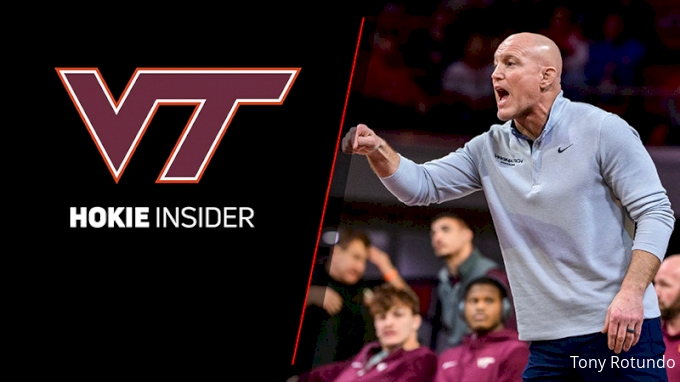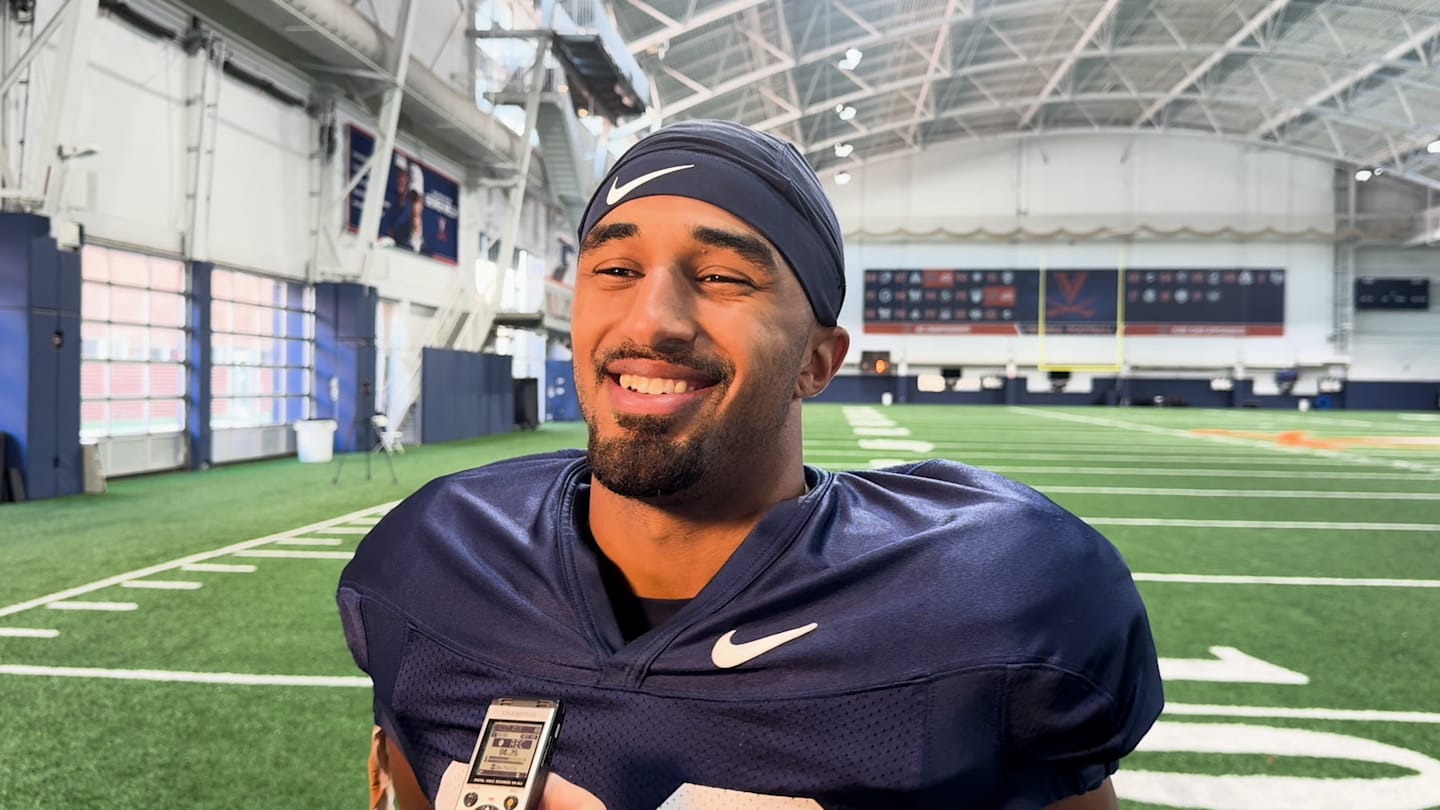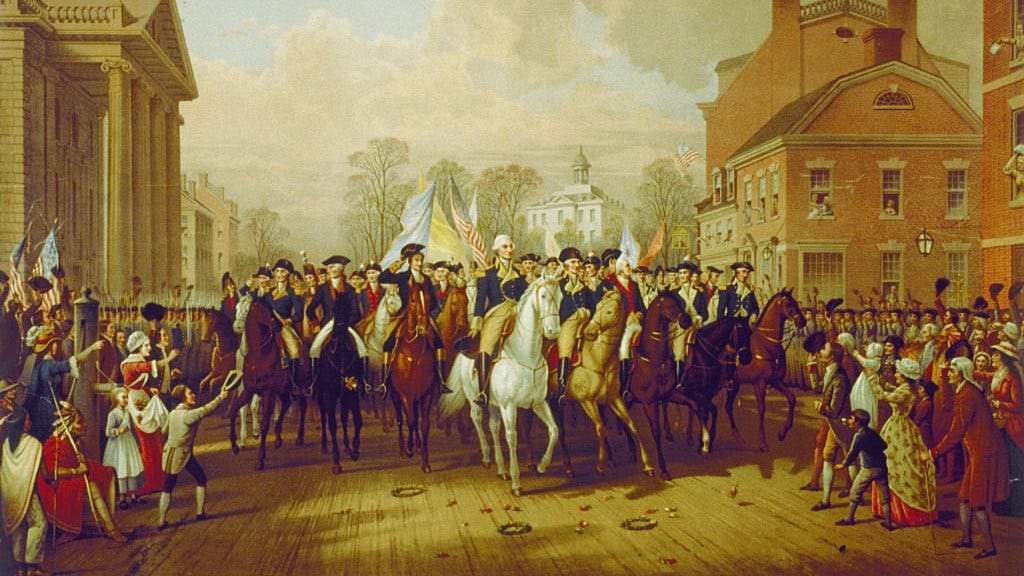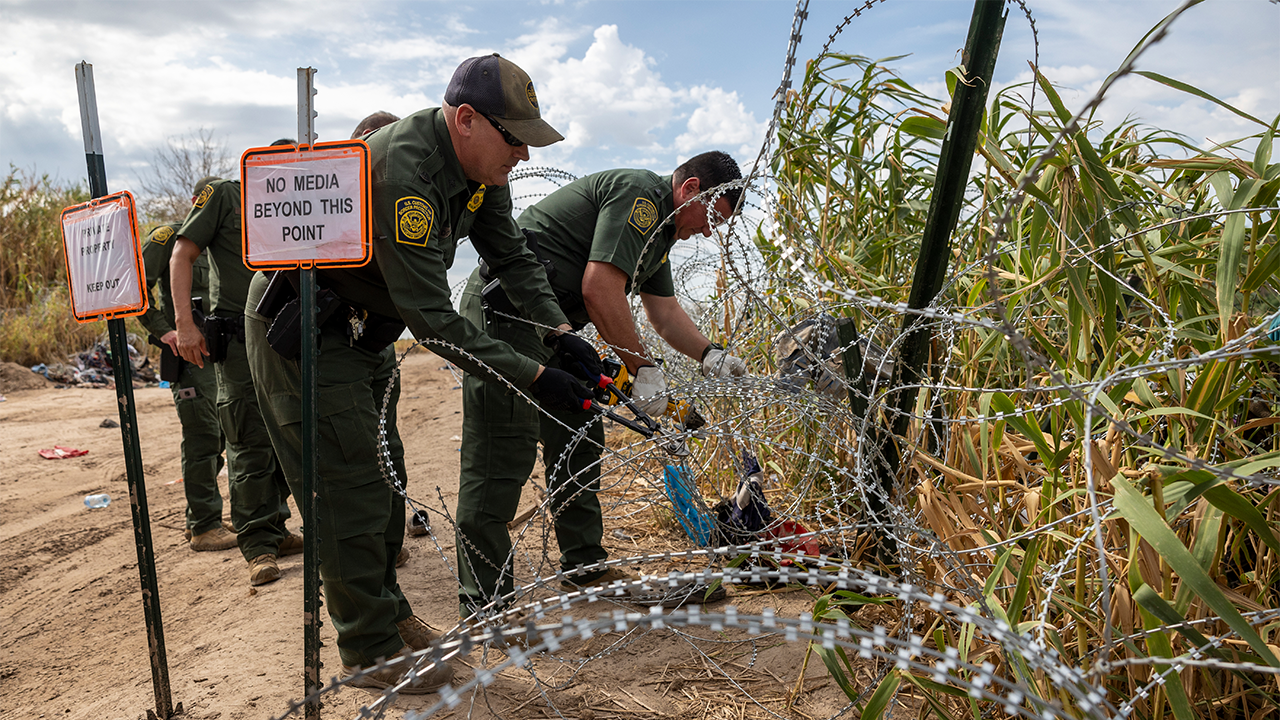Virginia
I Graduated From West Virginia University. The Travesty Unfolding There Is Breaking My Heart.

West Virginia University would like you to believe that its plan to make draconian budget cuts is strictly a financial decision. WVU, West Virginia’s flagship land-grant university, which is located in the small city of Morgantown on the state’s northern border with Pennsylvania, is rushing to eliminate 9 percent of its majors (32 programs in total), all foreign language programs, and 16 percent of full-time faculty members (169 in total) in response to a $45 million budget deficit for the fiscal year 2024.
As a first-generation student of color, a federal Pell Grant recipient from West Virginia, and a 2022 WVU graduate with a bachelor’s degree in political science and international studies, I am afraid for WVU’s future. I am also really hoping that people outside the state realize the degree to which the WVU administration played an active role in this crisis. Their proposal is a result of financial mismanagement, lack of institutional transparency, and an astonishing failure to recognize the power of education in transforming the lives of West Virginians.
It is hard for us who love WVU to understand the rationale behind WVU President E. Gordon Gee’s proposed budget cuts, including cuts to programs that have proven their profitability. That includes the department of World Languages, Literatures, and Linguistics, where I got my Arabic Studies minor, and which makes an average annual profit of $800 million.
WVU is the largest and only R1 university in West Virginia, meaning its high-ranking research programs span the academic spectrum. As a land-grant university established by the Morrill Act in 1862, WVU was entrusted with educating neglected rural students, who generally do not have access to exclusive private universities because they prioritize tuition revenue and privilege legacy applicants.
Many of the programs potentially facing the ax are those that grant students the greatest possibility for socioeconomic mobility. One comprehensive analysis of college majors and social mobility found that majors in education were uniquely advantageous; indeed, Gee himself received a doctorate in education, from Columbia. Multiple programs in education are recommended for discontinuation.
This is not the first time WVU has made inexplicable financial decisions, revealing a concerning level of indifference and institutional inadequacy. In 2014, Gee predicted that university enrollment would increase to 40,000 students, despite the fact that enrollment only reached approximately 31,000 at its historic peak. His administration proceeded to make financial decisions based on fiscal data that was almost nonexistent. The irony of Gee’s decision to cut WVU’s graduate program in mathematics, in light of his own statistical ineptitude, is palpable.
Gee’s enrollment projections have long been deemed suspect among students and faculty. West Virginia’s recent population decline has been one of the largest in the history of the United States. From 1950–2000, an estimated total of 797,000 people were lost to out-migration. One faculty member, who will be dismissed from WVU if the cuts are approved and who spoke on condition of anonymity, said: “West Virginia’s population decline is the largest in the U.S. From 2010 to 2020, nearly 60,000 people left. Did President Gee really think he could make everyone believe WVU was different? How can WVU break enrollment records when nobody wants to be here?” West Virginia recently lost a congressional seat following the 2020 census due to the state’s declining population.
I was born in Parkersburg, West Virginia, in 1999, and as the years have passed, I’ve watched more and more people wrestle with the decision to stay. During my childhood, I faced bullying for expressing my desire to reside in West Virginia when I grew up. My friends and family—even though they didn’t want me to move away—forcefully encouraged me to pursue higher education at WVU so that I could make a better life for myself somewhere else. Today, I’m convinced. I do not see a future for myself in West Virginia.
And, predictably, Gee was wrong; WVU’s enrollment has declined. In 2023, it reached a low of 26,000. But the assumption had already been interwoven into the budgetary calculus for WVU, setting it up for failure. Certainly, the budget crisis stems from a mix of factors. Some, like inflation and pandemic-induced dropouts, are unforeseeable and beyond administrators’ control. Other causes, which administrators are handsomely compensated to monitor, include graduation rates, political shifts in West Virginia, rising interest rates, and the end of COVID-related aid. For the administration to claim they have been blindsided by these issues, despite drawing high salaries as public employees to track them and laying out more big money to consultants to provide additional data, is confusing, to say the least.
Yet, perhaps most perplexing, Gee refuses to address what seems to be the root cause of WVU’s budgetary crisis: the rapid withdrawal of state funding from the school. While Gee cited increased costs and population decline as causes of WVU’s financial issues, he notably failed to mention that overall state funding has dramatically decreased in recent years. The West Virginia Center on Budget and Policy posits that the majority of WVU’s funding issues are due to this decrease. But Gee refused to ask for an increase in state funding, claiming: “I have told this to the governor, I’ve told this to the president of the Senate, to the speaker [of the House of Delegates], that I’m not going to come and ask you for $45 million, because it’s a structural deficit, we have to solve that problem.”
To be clear: Gee is not solving a structural issue. He is not cutting back on administrative excess. (Students are demanding that the WVU administration face an independent audit.) One cannot help but wonder if the cuts are driven by a hostility to liberal arts education couched in the sterile ambiguity of financial considerations. WVU isn’t the first place to experience this particular impact of austerity. Rpk Group, a consulting firm that WVU employed, has previously helped to cut academic programs in Kansas and at institutions like New Jersey City University, preserving and generating revenue primarily for majors and degree programs that serve the tech industry. In the Nation, Lisa M. Corrigan describes what’s happening at WVU as “a trial balloon for doing this elsewhere.”
We can’t help but juxtapose these choices with the fact that West Virginia consistently ranks as one of the poorest U.S. states, with a median household income of $50,884 and a poverty rate of 16.8 percent. Students from West Virginia, those who unquestionably proved to be the most rigorous, inquisitive, and committed peers I met during my undergraduate career, often shared advice for navigating poverty on WVU’s campus with one another. It is not uncommon for students to work jobs at low wages without employer benefits. Many of us struggled to afford to live in Morgantown, one of the state’s most expensive places to live, without federal financial assistance. Nearly everyone closest to me met SNAP eligibility requirements for food stamps.
Meanwhile, Gee’s past appointments at American universities concluded amid controversies he incited by implementing reductions to academic programs. His expense report at OSU revealed the university spent $7.7 million on Gee’s expenses, almost equaling his $8.6 million salary. When he was president at Brown, the university spent $3 million renovating his home. Under his supervision as chancellor at Vanderbilt, Vanderbilt spent $6 million renovating the mansion where Gee lived; Gee also incurred a $700,000 tab for hosting social events.
The contrast between the lifestyle implied by these big numbers and the way the students at WVU struggle does not go unnoticed on campus. WVU maintains the state’s largest health system and is West Virginia’s largest private employer. As a recipient of Medicaid, I supported other students in need of health care access, including helping them apply. During my tenure as senator in the WVU Student Government Association, student leaders frequently shared their frustration with one another regarding Gee’s access to complimentary healthcare through WVU.
Between 2010 and 2023, the WVU administration carried out extensive new construction initiatives and refurbishments aimed at enlarging its campus presence, as Dan Bauman details in the Chronicle of Higher Education. Much of this, including various buildings for the College of Business and Economics, the College of Physical Activities and Sport Sciences, agricultural sciences, and advanced engineering research, was funded by debt and private-public partnerships.
I watched as new buildings sprang up year after year, creating an ominous undertone on campus as more and more students disappeared. My friends and I were especially disturbed by the grandeur of Reynolds Hall, which opened in fall 2022. Reynolds Hall cost $100 million to construct. It was named for alumnus Robert “Bob” Reynolds, who donated $10 million to the project and now sits on the WVU Board of Governors. This is the board that votes on whether to approve these sweeping program cuts. I echo student concerns when I say that public universities’ boards of governors should be democratic bodies, not elite bureaucratic institutions.
West Virginian students and faculty do not choose their programs and specialties in a vacuum. Today, I am a labor historian and am studying the exploitation of Black people by the West Virginia coal industry. My research led me to the discovery of the Mining Extension Service of West Virginia State College, which provided mobile classroom education to rural Black West Virginian communities. This program was established in 1937 and discontinued in 1957 by an act of the state Legislature in the name of integration, abandoning Black West Virginians who had the greatest potential to benefit from education. Almost all records chronicling its existence were transferred to WVU’s library, until they were ordered to be destroyed in 1971 with officials alleging that the documents constituted a fire hazard.
West Virginia’s political elite have had a long-standing interest in denying people like me access to higher education. The loss of academic freedom extends to both student and faculty capacities to speak about the budget cuts. A current student stated, on the condition of anonymity: “Students like me can’t afford to go anywhere else. I can’t get this kind of education anywhere else in the state. The administration is telling me I’m only allowed to learn what they decide not to discontinue.”
A former member of the WVU Student Government Association also anonymously expressed: “I’m a student leader, and I don’t know what I can and can’t say. [The WVU administration] affects my future in West Virginia, and that’s all I’ve ever had.” It is hard for students to read the administration’s recent announcement that “the next item for review in the academic transformation will be the more than 450 organizations that support student life” as anything other than a thinly veiled threat.
These comments speak to the chilling effect WVU’s actions have had on campus conversation about these changes. Amid the possibility of further budget cuts, WVU is also requiring all faculty to pledge to “accept and encourage change that is for the greater good” and “avoid conduct that reflects adversely on the image of the University”—a requirement which the Foundation for Individual Rights and Expression describes as “unconstitutionally vague.”
If the academic offerings subject to dismissal had been absent at WVU in 2017, my first hope would’ve been to leave West Virginia and enroll in a university that authentically valued liberal arts and global preparedness. At the time, that was an option I could only dream of. But I am confident that ambitious students like me will figure out ways to attend university elsewhere, if they can afford to.
This, perhaps, is the ugly truth we’re learning through WVU’s budget controversy: Gordon Gee plans to retire in 2025. I have no doubt his grandchildren will benefit from a private education similar to his own, consisting of a thorough liberal arts education with access to subjects now increasingly reserved for the elite, such as math and foreign languages. They will have their choice of careers in the arts, humanities, government, finance, security, diplomacy, business, or tech. Those who decide what is worth learning, what is worth teaching, what counts as a “structural deficit,” will never bear the brunt of their own choices.
West Virginians, trapped in the clutches of economic hardship, find themselves mercilessly shackled to a state most can ill afford to abandon, left to suffer the full weight of the WVU administration’s harrowing decisions. We will learn only subjects aligned with the preferences of the rich, driven by their financial motivations. We will work for the oligarchs for the rest of our lives, just like our parents and our grandparents did for the global coal industry. We will continue to amass inconceivable riches for the nation’s privileged elite until our last breath, and we will find our resting place in unadorned cardboard coffins beneath West Virginia soil.
And those condemned to languish within the husk of WVU, who would excel within a capacious and intellectually coherent university, will only find it harder and harder to access avenues of social and economic mobility.

Virginia
Virginia Tech Football: Three Keys to Victory for the Hokies on Saturday vs Virginia

The rivalry matchup between Virginia Tech and Virginia is nearly 48 hours away and it is a big matchup for both teams. The Hokies and the Cavaliers are both 5-6 and needing a win to make a bowl game. The loser will be getting a headstart on 2025 instead of playing in the postseason.
At the start of the year, Virginia Tech was being talked about as one of the biggest surprise teams not just in the ACC, but in the country. This team’s biggest goals have gone away, but they still have an opportunity to reach a bowl game for the second straight season. That should still be a big deal to the program, but on the other side, the Cavaliers are trying to make a bowl game for the first time under Tony Elliott. They are going to be fired up about playing in this game and having a chance to make a bowl game, so Virginia Tech can’t take it for granted, no matter their past success vs Virginia.
So what are the keys to a win for Virginia Tech on Saturday?
Before you could even blink on Saturday night, Virginia Tech was trailing Duke 14-0 thanks to two long touchdown plays and the Blue Devils have not been a very explosive offense this season. Virginia has found a way to put points on teams like Clemson and Louisville this season and has improved since last year. The Hokies’ pass rush was non-existent on Saturday vs Duke, finishing with no sacks and being unable to disrupt Duke quarterback Maalik Murphy. They will have to be able to play better on Saturday if they want to avoid the upset.
It is still up in the air who is going to play quarterback for the Hokies on Saturday night, but whoever it is would benefit from a big game from one of the nation’s best running backs. Tuten had 84 yards on 19 carries last week, but Virginia Tech might need more than that on Saturday when the face the Cavaliers.
Our own RJ Schafer wrote this about the quarterbavck situation heading into Saturday’s game:
“Brent Pry listed both Kyron Drones and Collin Schlee as questionable ahead of the historic matchup. He added that both will practice, although very limited, and they could “just be watching” from the sidelines.
Coach Pry also added that Virginia Tech is preparing four quarterbacks to be ready to play this weekend, including Davi Belfort, a freshman quarterback from Brazil, a country which could begin to be the future of American college football.
Whoever plays this weekend is going to have to have to manage the game and not turn the ball over. I think the offense is going rely on the run game heavily this weekend due to that.
Additional Links:
Virginia Tech Football Releases Depth Chart Ahead of Matchup Against Virginia
Virginia Tech Football: PFF Grades and Snap Counts For Every Player in Saturday’s Loss to Duke
Virginia Tech Football: Updated Bowl Projections For The Hokies Heading Into Final Game
Virginia
Big Tests On The Horizon For Virginia Tech Wrestling – FloWrestling

At 3-0 with marquee victories over #6 Missouri (23-10) and #21 Rutgers (26-11), as well as a second-place finish in the Keystone Open with just a handful of starters competing, Virginia Tech has swept through a tough November and is prepared for a difficult December.
The Hokies, #12 in Flo’s team tournament ratings but top 10 in various dual-meet rankings, are next scheduled for an annual trip to Las Vegas for the Cliff Keen Invitational, featuring 27 teams, of which 14 are among Flo’s top 25. And then it’s another trip west to Stillwater on Dec. 19 to challenge #5 Oklahoma State in a rare Thursday match.
The early key thus far for the Hokies has been the ability to win the bouts they’re supposed to win and grabbing a fair share of so-called toss-up bouts.
To wit, Tech’s #18 Sam Latona downing Missouri’s #13 Josh Edmond (4-2) at 141, or #25 Rafael Hipolito majoring the Tigers’ #32 James Conway (11-3) at 157 and #15 Jimmy Mullen stopping #20 Seth Nitzel (4-2) at heavyweight.
That trend continued at Tech’s Moss Arts Center match against #21 Rutgers when Latona used a late takedown to defeat Joey Olivieri 7-5, #4 Lennox Wolak pinned veteran Jackson Turley at 174 and #9 Andy Smith slipped past #17 John Poznanski 4-3 at 197.
Hokies coach Tony Robie only took a few regulars to the Keystone Open in Philadelphia and, led by championship efforts by #1-ranked Caleb Henson at 149 and heavyweight Hunter Catka, Tech placed second behind Lock Haven. Latona placed third at 141 and Sam Fisher did the same at 184.
Robie opted to use the Hokies’ roster as freshmen Dillon Campbell (125), Matt Henrich (157), Luke Robie (157) and Jack Bastarrika (133) competed as did redshirt juniors Jackson Spires (165) and Ty Finn (174). Spires placed second.
Who’s Ready For Change?
With legislation on the NCAA’s table affecting scholarship and roster limits — unlimited scholarships and a roster cap — as well as revenue sharing, some college wrestling programs likely have a serious dose of trepidation while others are confident they can deal with whatever happens.
Virginia Tech sits in the latter category.
“I have no concerns whatsoever about that,” Robie said earlier this month. “I think a lot of it probably will happen. It’s hard to say whether it’s good or bad for the sport; that’s not really for me to say. What I will say is you have to adjust with what the rules are and what the landscape of college athletics looks like, and that’s what we intend on doing.
“Is it good for the overall health of the sport of wrestling? The kid that’s the 35th kid on your roster? Probably not. But I think definitely there were probably some things that needed to change; the pendulum was starting to swing significantly the other way. At some point, it’ll probably start to go back to the middle.”
Robie said all anyone can do is wait for the final decisions.
“We have some contingency plans based on what we think is going to happen and we’ll move forward with our plan and try to execute it,” he said.
A Pretty Good Gig
Robie, in his eighth year as head coach, has been at Tech since 2006 and as each season passes, the commitment and enthusiasm remain the same.
“Well, you get to do what you like to do. And it’s a pretty cool thing to be able to coach wrestling for a living and be a part of a pretty good program, and work with some great people and try to affect the lives of the kids in your program,” he said.
“I think anybody would want to do that. For me, I’m not young anymore. I turned 50 … who knows how long I’m going to do it, but I’m going to give it the best I can while I’m doing it and hopefully continue to improve as a program and try to try to help these guys as much as possible. But it’s good, Virginia Tech’s a great place to work, it’s a great place to live. I’ve got a great staff and it makes my life pretty easy.”
Virginia
VIDEO: UVA Football Players Preview the Virginia Tech Game

With the game of year looming this weekend, members of the Virginia football team were made available to to the media after practice on Tuesday morning to talk about the regular season finale against Virginia Tech in the Commonwealth Clash on Saturday night in Blacksburg. Watch the video below to hear what UVA senior safety Jonas Sanker, graduate tight ends Tyler Neville and Sackett Wood Jr., and graduate defensive tackle Jahmeer Carter had to say ahead of the Virginia Tech game:
Sanker is the team’s leader in tackles with 89 total tackles and also leads the ACC in solo stops with 60 unassisted tackles. He has racked up 8.5 tackles for loss, two sacks, four pass breakups, two fumble recoveries, and an interception as part of a strong senior campaign that should earn Sanker some serious consideration for a First-Team All-ACC selection.
A transfer from Harvard, Tyler Neville is Virginia’s second-leading receiver with 35 catches for 387 yards and two touchdowns. Sackett Wood Jr., meanwhile, has recorded three receptions for 18 yards and a touchdown this season. Between the two of them, Neville and Wood have combined to appear in 83 college football games and make 48 starts.
Saturday will be the 55th game in the five-year career of Jahmeer Carter, who has started nearly every game for the last four seasons at Virginia. This season, Carter has 30 total tackles, including nine solo stops, two tackles for loss, one sack, and a pass defender. For his career, Carter is up to 131 total tackles, 2.5 sacks, and 7.5 tackles for loss.
Saturday night will be the first time Virginia plays at Lane Stadium in front of fans since the 2018 season, as the 2020 edition of the Commonwealth Clash was played in front of only 250 fans due to COVID-19 restrictions and then the 2022 Virginia vs. Virginia Tech game was canceled due to the shooting tragedy at UVA.
Virginia is seeking its first road victory at Virginia Tech since 1998, as the Hokies have won the last 11 Commonwealth Clash games played at Lane Stadium. Virginia Tech has won 17 of the last 18 overall games against Virginia and leads UVA 61-38-5 in the all-time series that dates back to 1895.
Both Virginia and Virginia Tech bring a 5-6 overall record into the regular season finale and both need to win the game in order to reach the six-win threshold required for bowl eligibility. There is only one other game this weekend between FBS teams who are battling for bowl eligibility (Eastern Michigan vs. Western Michigan). Virginia and Virginia Tech played each other for bowl eligibility at the end of the 2014 season.
UVA Football: Players to Watch in Virginia vs. Virginia Tech
UVA Football Week 14 Injury Report: Kobe Pace, Kempton Shine, Trell Harris
Virginia Football Depth Chart vs. Virginia Tech | Takeaways, Analysis
Virginia Football Opens as Touchdown Underdogs at Virginia Tech
UVA Football Report Card: Handing Out Grades for Virginia vs. SMU
-

 Science1 week ago
Science1 week agoTrump nominates Dr. Oz to head Medicare and Medicaid and help take on 'illness industrial complex'
-
/cdn.vox-cdn.com/uploads/chorus_asset/file/25739950/247386_Elon_Musk_Open_AI_CVirginia.jpg)
/cdn.vox-cdn.com/uploads/chorus_asset/file/25739950/247386_Elon_Musk_Open_AI_CVirginia.jpg) Technology1 week ago
Technology1 week agoInside Elon Musk’s messy breakup with OpenAI
-

 Health5 days ago
Health5 days agoHoliday gatherings can lead to stress eating: Try these 5 tips to control it
-

 Health3 days ago
Health3 days agoCheekyMD Offers Needle-Free GLP-1s | Woman's World
-

 Science2 days ago
Science2 days agoDespite warnings from bird flu experts, it's business as usual in California dairy country
-

 Technology1 day ago
Technology1 day agoLost access? Here’s how to reclaim your Facebook account
-

 Science1 week ago
Science1 week agoAlameda County child believed to be latest case of bird flu; source unknown
-

 Sports1 week ago
Sports1 week agoBehind Comcast's big TV deal: a bleak picture for once mighty cable industry















